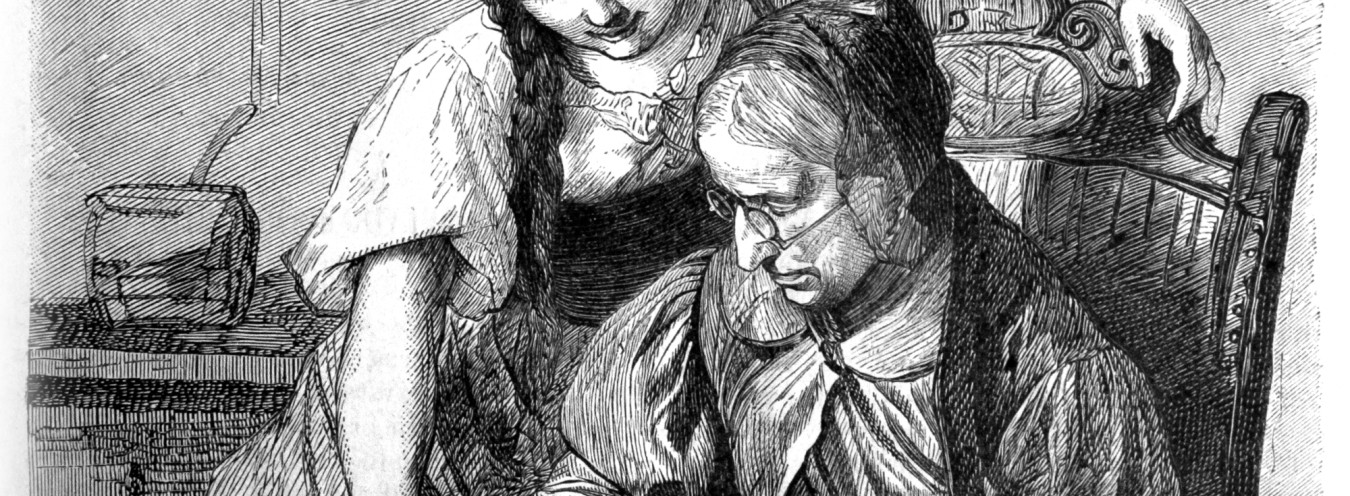
Old Age
I’m so old I prefer to know no more. I’m so old that I only want a decent death. [Ignacy Rzecki] (30)
[A]bove all this, the presence of that aristocratic old woman wafted like a poem, imbued with sighs and tears. (105)
Throughout the nineteenth century, the age of death was being steadily pushed back. According to French studies, life expectancy in France was 38 for men and 41 for women as of 1850, i.e. one year after Bolesław Prus was born. One year after the author died at the age of 63, in 1913, French men already lived on average to 48, and women to 52. However, Polish statistics – so often drawn on by Prus in his weekly press columns Kroniki – state that, towards the end of the nineteenth century, Varsovians died at the average age of just 33. Of course, the poorest stood the smallest chances of ever getting old: the death toll was the highest among, for example, the inhabitants of the most deprived districts, Praga and Powiśle.
Thus, quite paradoxically, it seems that there are far more elderly people in the novel than there should be in a realistic representation of the epoch when few lived to see old age. Older people that appear in the foreground and background plots include not only Countess Joanna Karolowa, Tomasz Łęcki, and Duchess Zasławska, but also old servant Mikołaj and butler Józef, Professor Geist, Mr Raczek, Szlangbaum Senior with his bald head and grey beard, Jan Mincel – an old man with a red face, his mother – a thin old lady in a yellow dress, called Grossmutter not only by her own grandsons but also by Rzecki. Two suitors of Izabela Łęcka, the marshal and the Baron, are both advanced in years, which undermines them in the eyes of their object of affection (despite the fact that a woman with an old husband is more respected in noble circles, as explained to her by aged and experienced Countess Karolowa). Yet, Jadwiga Misiewicz is another elderly character preoccupied with the well-being of her nearest and dearest. An age-mate of Rzecki, she belongs to the older generation and has a granddaughter of several years, called Helunia. Mrs Meliton is also thought to be old – though this is mainly attributed to difficult life experiences, a long-term disease, loneliness and the resulting pessimistic outlook on life: She stayed in the hospital six months, in a private room, alone and forgotten […]; she emerged as a thin, elderly woman with grey and thinning hair.
Old age is represented in many different shapes and colours (with the dominant grey and white; Tomasz Łęcki, for example, was over 60, wore a small white moustache, his hair was white). A typical description we would be looking for is probably the stooped figure and dry little hands of Grossmutter. Duchess Zasławska, called the old lady, is surrounded with concern and tenderness by everyone. However, old age does not always command respect.
Izabela develops an aversion to her elderly admirers. The marshal (not an Adonis, as Countess Karolowa puts it) is called hideous by Izabela because of his old-age drooling, and mocked to need a nursemaid much more than a wife. As for the Baron, the young woman observes that he paints his face and there are revolting marks on his hands. The off-putting physicality is highlighted, quite surprisingly, mainly in men (Baron Dalski, for example, looks like a twenty-year-old corpse when he dyes his grey hair and beard to spite his wife). However, the novel also places an emphasis on the mental characteristics of senility, such as a tendency to look back to the past, to indulge in reminiscence, to make shortcuts based on random associations, or to become over-sentimental (Duchess Zasławska, Countess Karolowa, Grossmutter, Jadwiga Misiewicz, to some extent Rzecki as well).
Ignacy Rzecki appears old not as much because of his age as his vast experience in commerce and many years of work in the shop (he is often called the old clerk by the narrator) as well as his lifestyle and manners, so characteristic for the epoch that has ended before the action of the novel begins. Józef Bachórz, renowned The Doll scholar, suggests that When [Rzecki] mentions his senility, it is a statement on his frame of mind and temperament rather than the actual old age. Like Doctor Szuman, Rzecki is seen as an eccentric confirmed bachelor who is unlikely to ever enjoy an important part of human experience: being married and having a family life. The not-so-old, but not-so-young-either Rzecki is accompanied by his faithful friend, an old poodle called Ir.
Old age also defined the position of individuals within their social groups. And so, noble matrons […] watched over elegant manners and behaviour, while elderly gentlemen who took their place at the top table, spoke kindly to young people, blessed them and played cards.
→ Ir and Other Animals; → Powiśle; → Rzecki, Ignacy;
Bibliografia
- J. Bachórz, Introduction to B. Prus, Lalka, BN I 262, Wrocław 1991, 1998.
- J.-P. Bois, Historia starości. Od Montaigne’a do pierwszych emerytur, trans. K. Marczewska, Warsaw 1996.
- Historia życia prywatnego. Od rewolucji francuskiej do I wojny światowej [A History of Private Life: From the Fires of Revolution to the Great War], vol. 4, ed. M. Perrot, Wrocław 1998, 2006.
- S. Milewski, Codzienność niegdysiejszej Warszawy, Warsaw 2010.


